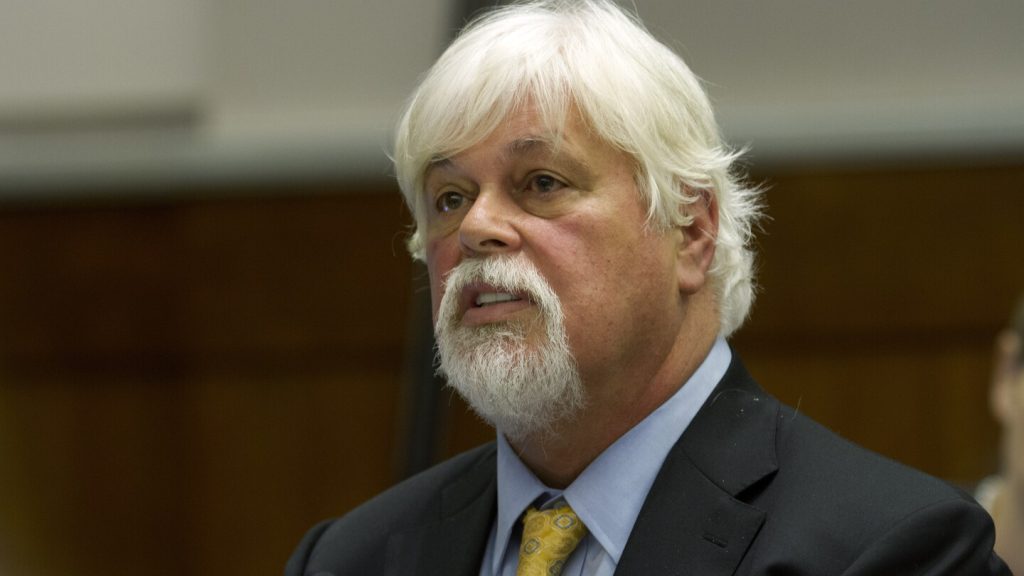The court in Greenland has ruled that environmental activist and anti-whaling campaigner Paul Watson must remain in custody as authorities consider Japan’s request for his extradition. The decision was made to ensure Watson’s presence in connection with a decision on extradition, with a detention period until September 5. Watson, a 73-year-old Canadian-American citizen and former head of the Sea Shepherd Conservation Society, was arrested last month on an international warrant issued by Japan. Japan’s government requested his extradition following a 2010 incident where he was accused of obstructing a Japanese whaling research ship’s crew by ordering the captain of his ship to throw explosives.
Watson’s direct action tactics, including high-seas confrontations with whaling vessels, have drawn support from celebrities and were featured in the reality television series “Whale Wars.” Despite his appeal to Greenland’s High Court, the decision to keep him in detention stands for now. Japan’s coast guard sought his arrest over the 2010 encounter, highlighting the ongoing tensions between anti-whaling activists and countries like Japan, which argue that whale meat is part of their food culture and support the sustainable use of whales. Japan’s withdrawal from the International Whaling Commission in 2019 allowed them to resume commercial whaling within their exclusive economic zone.
Greenland, as an autonomous territory of Denmark, is currently handling the extradition request and legal proceedings in Watson’s case. The veteran activist, who left Sea Shepherd in 2022 to start his own organization, was also a leading member of Greenpeace before leaving the organization in 1977 due to disagreements over his aggressive tactics. Watson’s history of confronting whaling ships and his role in the environmental movement have made him a polarizing figure in the ongoing debate over whaling and conservation efforts. His arrest and potential extradition to Japan mark a significant development in the legal and political landscape surrounding these issues.
The support Watson has received from A-list celebrities and his popularity through projects like “Whale Wars” have brought attention to the plight of whales and the global campaign against whaling. His confrontational approach to conservation efforts has garnered both praise and criticism, with some viewing him as a hero willing to take bold action against destructive practices and others as a controversial figure crossing legal and ethical boundaries. The outcome of his extradition hearing and the broader implications for environmental activism and marine conservation remain uncertain as authorities navigate the complex legal and diplomatic challenges posed by Watson’s case.
Despite the ongoing legal proceedings and the controversy surrounding Watson’s tactics, his detention in Greenland serves as a reminder of the intersecting interests and conflicts at play in the global debate over whaling and marine conservation. The tensions between conservationists, governments, and industries involved in whaling highlight the complexities of balancing cultural traditions, sustainable practices, and environmental protection. As Watson’s case continues to unfold, it raises important questions about the roles of activism, law enforcement, and international cooperation in addressing complex environmental challenges and shaping the future of marine conservation efforts on a global scale.


